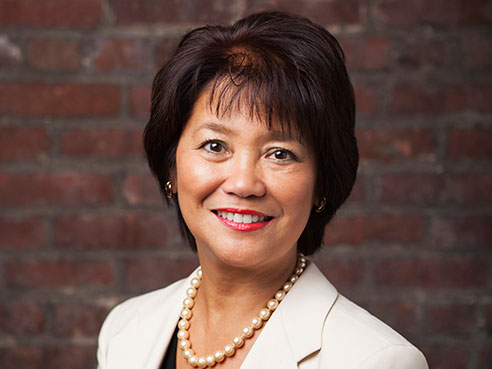 Written by Jennifer Loller
Written by Jennifer Loller
The University of Alabama at Birmingham School of Nursing has been named a partner in a five-year, $2.24 million Centers for Disease Control and Prevention grant that will create the Gulf South Young Breast Cancer Survivors Network to help young survivors receive the support they need.
UAB joins the Louisiana Cancer Prevention and Control Programs at the Louisiana State University Health New Orleans School of Public Health and the University of Mississippi Medical Center in the project. It will provide targeted online resources to women in Alabama, Louisiana and Mississippi, building on the UAB School of Nursing’s Young Breast Cancer Survivorship Network in central Alabama and LCP’s successful SurviveDAT project in south Louisiana.
“Young breast cancer survivors face unique issues when dealing with the disease, including more serious strains of the disease, fertility questions and barriers, partner/child concerns, career implications, sometimes severe financial ramifications, and more,” said UAB School of Nursing Associate Dean for Research Karen Meneses, Ph.D., principal investigator for the Young Breast Cancer Survivorship Network. “Resources like the YBCSN and Gulf South Young Breast Cancer Survivors Network are important to maintain the quality of life for survivors and their families.”
The Gulf South Young Breast Cancer Survivors Network is a collaborative effort among the three partners that will work together to create its website and social media presence, with the Mary Bird Perkins Cancer Center — an original partner in Louisiana’s existing SurviveDAT project — furnishing additional support in the form of resource gathering and graphics creation.
| “Young breast cancer survivors face unique issues when dealing with the disease, including more serious strains of the disease, fertility questions and barriers, partner/child concerns, career implications, sometimes severe financial ramifications, and more.” |
Expanding on the current Louisiana and Alabama offerings, the project’s website and social media will contain a variety of national, state and local resources from each state for young breast cancer survivors ranging from educational and technical information on breast cancer to more day-to-day, practical advice on matters such as to where to buy wigs locally or listing makeup artists skilled in creating eyebrows for women who have lost them to chemotherapy.
There will also be videos and interactive opportunities for these women to share their stories, provide advice and more. In addition, there will be helpful information for the people surrounding young breast cancer survivors, including providers, family members and caretakers.
Meneses says the CDC is funding this online support project and has brought these partners together because of the large number of breast cancer patients in these states and because so many are from rural areas.
“These three states have a preponderance of breast cancer among young women, and rank second (Mississippi), fourth (Alabama) and fifth (Louisiana) in breast cancer deaths for women under 50,” Meneses said. “Combine this with much of Louisiana, Mississippi and Alabama being rural and/or low-income areas, which limits people’s being able to meet at or travel to in-person support groups, and you have excellent locations to bring much-needed online services to improve the quality of life for breast cancer survivors and their families.”
In addition, Meneses says, this project also will target minority women.
“Though African-American women have an overall lower breast cancer incidence rate than Caucasian women do, they have a higher incidence of the disease under age 45,” she said. “From 2007 to 2011, 40 percent of the young breast cancer cases diagnosed in Louisiana, Mississippi and Alabama were in African-Americans.”
Meneses expects the online and social media resources to successfully reach the targeted populations. The Nielsen company reports that 92 percent of people ages 18-29 use social media, as do 73 percent of people ages 30-49. The Pew Research Center has reported that women use social networking sites at higher rates than do men, while young African-American women use them at significantly higher rates. Pew also says that almost 60 percent of African-American women have a smartphone, which is significantly higher than the rate for Caucasian women; and almost half of all African-Americans with an income under $30,000 do as well.
Smartphone use among young women, in general, is very high, she adds. All of these facts point to online resources and social media as being effective ways to reach young breast cancer patients.
Patients who have participated in the Young Breast Cancer Survivorship Network say they believe the online and social media resources will be as valuable to the patients who use them as the network has been to them.
“After being asked to help lead a discussion at the first YBCSN conference in 2013, my life was changed,” said survivor LaRhonda Scott. “It taught me that my story is important and that my life is an inspiration to other young women. Since then I have spoken on other occasions, and I am now working to collect recyclable plastic bottles and containers to help fund mammograms for women under age 35. It’s my way of paying forward the lifeline of support YBCSN has given me.”
For more information on participating in the Gulf South Young Breast Cancer Survivors Network, or YBCSN, contact UAB School of Nursing Program Manager Silvia Gisiger-Camata at 205-975-8656 or sgcamata@uab.edu.